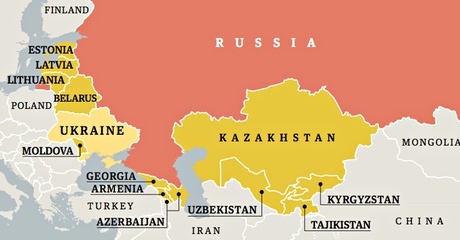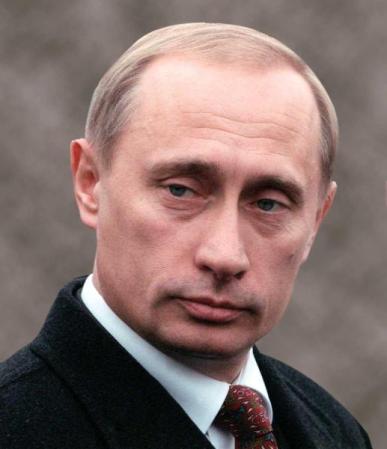Getting set to recreate the old Soviet empire
Primary tabs
original article: http://philebersole.wordpress.com/2014/03/08/getting-ready-to-recreate-t...
Vladimir Putin, the president of the Russian Federation, once said the break-up of the old Soviet Union was a geopolitical catastrophe. Now laws are being enacted that will make it easier to put the pieces back together.
The Russian Federation has changed its citizenship procedures so that speakers of Russian, who have lived for three years in any of the former Soviet republics, can obtain citizenship in as little as three months.
Precedence will be given to highly-trained professionals and Prime Minister Medvedev said the law is intended to bolster the economy of Russia. But it obviously applies to the many Russian speakers not only in Ukraine, but Kazakhstan and other former Soviet republics.
The State Duma, the lower house of the Russian parliament, is considering a law to allow annexation of territory against the opposition of the legal government, provided that the majority of the people of the area want to join Russia. A vote on this law is being postponed until after Crimea holds a referendum on annexation.
This, too, has implications for other countries besides just Ukraine.
As Hillary Clinton said, Russia’s move into Crimea is reminiscent of Nazi Germany’s occupation of the German-speaking border areas of Czechoslovakia in 1938, which was followed by the takeover of the whole country. [1]
 Russia’s move also is reminiscent of the U.S. annexations of Texas in 1848 and Hawaii in 1900. Local Americans staged revolutions, and then petitioned to join the USA. Not to mention the invasion of Grenda in 1981, whose purpose supposedly was to protect American citizens, and more recent U.S. military interventions.
Russia’s move also is reminiscent of the U.S. annexations of Texas in 1848 and Hawaii in 1900. Local Americans staged revolutions, and then petitioned to join the USA. Not to mention the invasion of Grenda in 1981, whose purpose supposedly was to protect American citizens, and more recent U.S. military interventions.
But the U.S. government’s past sins do not make the Russian government’s intentions pure, and indicting U.S. hypocrisy does nothing to help the Ukrainians.
The United States and European Union may be been seeking financial advantage, but the Russian Federation seeks geo-political advantage.
What should the United States do? The U.S. government does not have moral standing to complain, given its own interventions in foreign countries. The United States is not in a position to defend Ukraine, let alone nations in the Caucasus or Central Asia. Sanctions may have some effect, but that’s unlikely. The time for compromise may have come and gone.
As former Defense Secretary Donald Rumsfeld said: When a problem cannot be solved, it may not be a problem, but a fact. Russian power in its “near abroad” is a fact.
LINKS
Ukraine crisis: Russia mulls new land-grab law by BBC News.
Russia to make citizenship easier for native Russian speakers by Reuters.
Edginess and a reluctance to rattle Russia’s cage in former Soviet republics by Alec Luhn and Joanna Little for The Guardian.
Europe’s ‘new world order’ is letting Vladimir Putin run riot by John O’Sullivan for The Spectator.
Ukraine crisis: What does the Budapest Memorandum obligate the U.S. to do? by Laurence Lewis for DailyKos.
The United States does not have a treaty obligation to come to the defense of Ukraine. In 1994, when Ukraine surrendered its nuclear weapons to Russia, the governments of Russia, Britain and the United States pledged to uphold Ukraine’s national sovereignty.
Russia is clearly in violation of that agreement. But the only thing the three governments pledged to do if Ukraine was attacked was to bring bring the matter before the United Nations Security Council.
[1] My first draft of this post said inaccurately that Hillary Clinton compared Putin’s actions in Crimea with Hitler’s anschluss of Austria into Germany.











